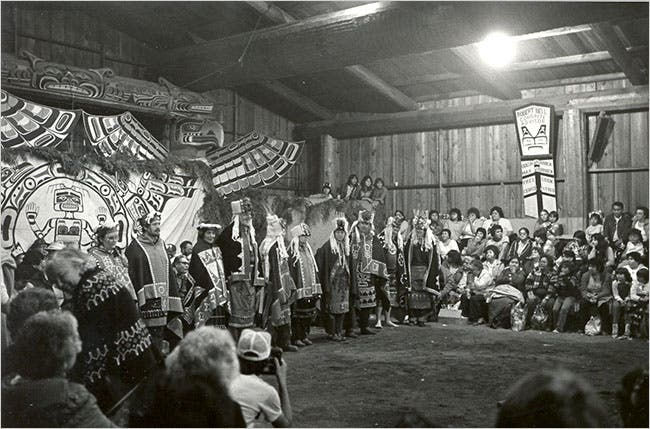Potlatches and Shared Wealth
- Erica

- Aug 14, 2021
- 2 min read
Updated: Nov 13, 2023
How different would our modern lives be if we valued sharing over personal possessions? Wouldn’t poverty be non-existent? Wouldn’t the major problems in our world dissipate?
We discuss today how many Indigenous Communities establish this type of connection through a ceremony called Potlatch.
Potlatches were an integral part of the many tribes within North America, including the Kwakwaka’wakw, Nuu-chah-nulth, and Coast Salish. It was a form of power, wealth, and sharing.

These Potlatches would be held in the cases of the naming of children, marriages, and funerals. For the tribes that practice Potlatch, it was an integral part of their culture. During the event, those who held leadership positions would take out large amounts of what they amassed over the year and share it with other members of the community. Oftentimes, leaders might destroy part of their ‘wealth’(meat, fishing holes, hunting rights, etc. ) as a way of showing their importance.
However, the main idea is that these tribes all believed that the wealthier they are the more they must share with others. To be wealthy means to share.

It was undoubtedly an intricate way of bonding and developing pleasant feelings among the tribe. It was also a pleasurable way of developing one’s morals and character.
In an unfortunate turn of events, the Canadian government amended the Indian Act to ban all Potlatches in 1884 commenting how it was anti-Christian to destroy possessions. It may be true that leaders destroy their possessions in a show of power, but it is important to understand that Indigenous spirituality has no connection to Christianity. Using Christianity to justify this ban is arguably not suitable. Frankly, the ban leaned more towards giving the government more of an opportunity to assimilate Indigenous communities than respecting Christianity.
As Potlatches were such an integral part of tribal culture, many tried to hold them in secret despite being ’illegal’. In 1921, the last major Potlatch was held but the Indian Agent interrupted it and everything within the ceremony was confiscated.
It was not until 1951 that the Indian Act was once again amended so that the ban on Potlatch was lifted. However, within the nearly 100 years that the practice of Potlatch had been banned, many tribes developed psychological pressure that inhibited them from holding this event. In other words, it became increasingly difficult for Kwakwaka’wakw, Nuu-chah-nulth, and Coast Salish people to return to the time when they freely held Potlatches without the feeling of unease.
This, not surprisingly, worked towards the better interest of the government as they became one step closer to assimilation.
Today, although many tribes who traditionally practiced potlatches hold them as frequently as possible ( every naming of children, wedding, or funeral ), the effects of the ban is evident as many formalities were lost during that time.
This leaves us with an interesting question. If Indigenous Communities like the Kwakwaka’wakw, Nuu-chah-nulth, and Coast Salish people shared their value of sharing with the greater community, how different would our community look today?

Sources Cited:
Gadacz, René R. “Potlatch.” The Canadian Encyclopedia, 24 Oct. 2019, www.thecanadianencyclopedia.ca/en/article/potlatch.
U'mista Cultural Society, Synthescape Art Imaging. “Potlatch: Living Tradition, The Kwakwaka'wakw Potlatch on the Northwest Coast.” Potlatch, U'mista Cultural Society, www.umistapotlatch.ca/potlatch-eng.php.
Photo credits:



Comments